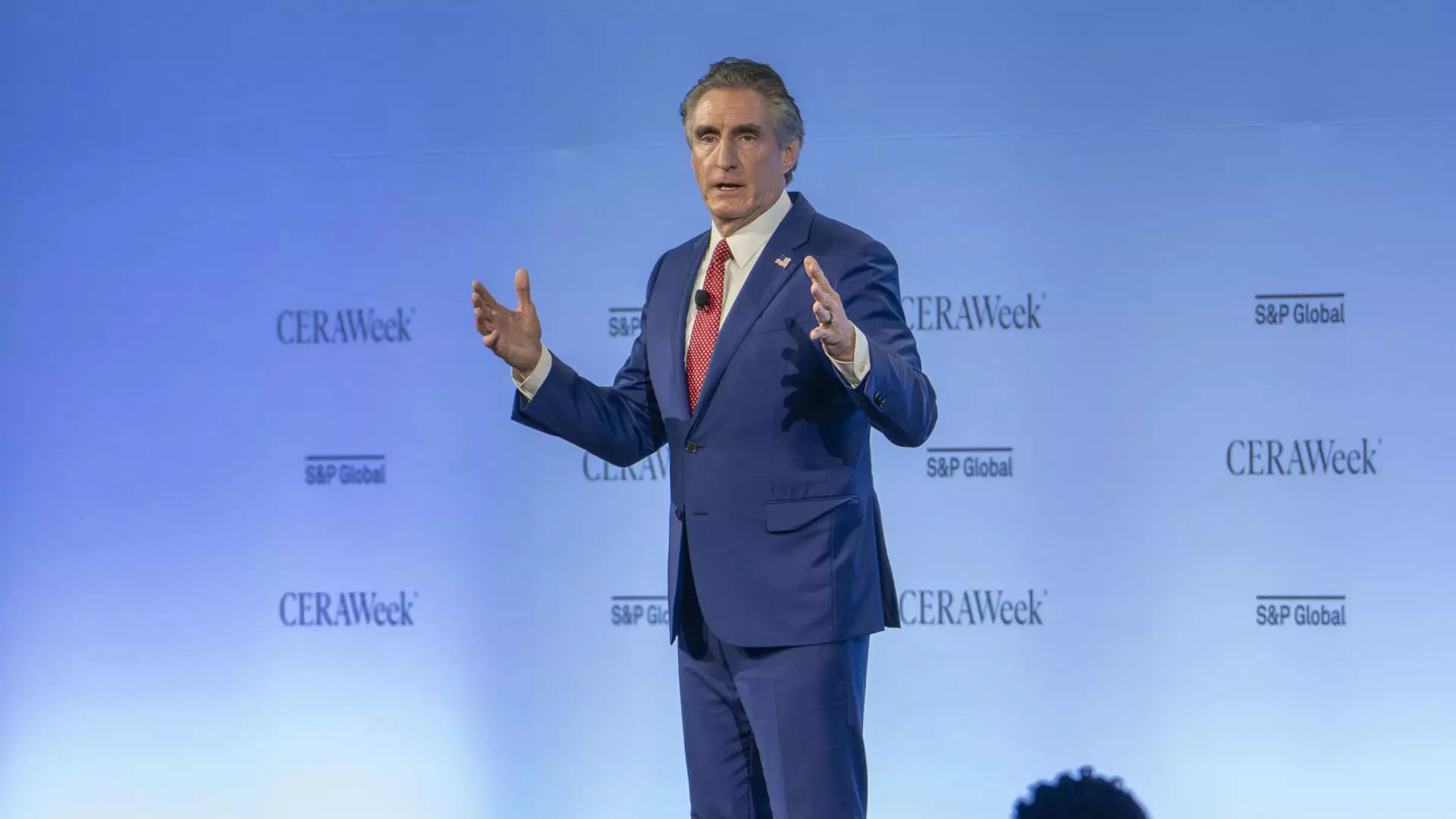In a striking display of conviction, officials from the Trump administration have boldly reaffirmed their commitment to an energy agenda that prioritizes economic growth and resource development over environmental concerns. At the recent CERAWeek by S&P Global, Interior Secretary Doug Burgum and Energy Secretary Chris Wright made it abundantly clear: their mantra is to unleash America’s vast natural resources and create a friendly climate for fossil fuel exploration, dismissing climate change as an urgent priority. Their rhetoric symbolizes a pivotal shift back towards a robust, energy-centric policy, one deeply appreciated by industry leaders from oil, gas, and mining sectors.
Oil and Gas as the Cornerstone of Economic Growth
During the energy conference in Houston, Burgum’s comment that the oil and gas industry are “customers” rather than adversaries underscores a significant ideological departure from the previous administration. By framing federal lands as a marketplace brimming with opportunities, Burgum suggests that drilling, mining, and timber harvesting are not merely economic activities but essential contributions to national prosperity. This view posits that revenue generated through resource extraction will play a crucial role in balancing the national budget and addressing the country’s towering debt, which currently stands at a staggering $36 trillion.
Moreover, the implication is clear: the value derived from America’s natural assets could dramatically alter the fiscal landscape, reducing long-term interest rates and curbing national expenses. If the administration’s vision is realized, the ramp-up in production utilizing federal lands could reignite sectors hampered in recent years, presenting a powerful argument against burgeoning debt and financial stagnation.
Climate Change: A Dismissed Ideology
Burgum’s characterization of the Biden administration’s approach to climate discussions as “ideological” reflects a critical pivot in political narrative. He paints climate change as secondary to far graver threats, namely geopolitical tensions with nations like Iran and China. Such statements challenge the prevailing narrative that climate action must precede all else, a perspective that too often sidelines economic considerations as provisions for cleaner energy become an end in themselves, rather than part of a balanced approach to national interests.
Wright’s assertion that striving for emission reductions, as supported by the Biden administration, is “myopic” and “quasi-religious” raises crucial questions about the effectiveness of current policies versus the urgent economic needs of everyday Americans. As industries seek to rebound and evolve, the positioning of oil and gas as an indispensable part of America’s stabilization plan stands in direct contrast to pivotal climate initiatives that risk crippling economic recovery.
Industry Leaders Rallying Behind Renewed Energy Policies
The appreciation and endorsement of Trump’s energy team from major oil executives emphasizes the optimism blooming within this sector. ConocoPhillips CEO Ryan Lance’s assertion that the administration represents the best energy team in decades, coupled with comments from BP and Chevron executives, signals a unified front emerging in favor of unfettered resource utilization. Their calls for a “balanced conversation” regarding affordability, reliability, and environmental stewardship are notably stark against an administration that has, until now, seemed to prioritize climate agendas predicated on renewable energy at the expense of traditional energy sources.
The enthusiasm is palpable as these executives pivot towards committing to explore and extract resources from what they affectionately call the “Gulf of America.” It serves as a reminder that while there may be ideological divides, the mutual interest in economic revival and energy dominance forms a vital connection among various stakeholders.
Challenges Ahead: Market vs. Political Realities
Yet, even amidst this wave of fervor, there lies a paradox. The pace of U.S. oil production, according to industry stalwarts, shows signs of plateauing. CEO insights reflect a growing recognition that relentless pursuit of growth may not deliver sustainable results. The cautionary sentiment that, at some point, extracting more barrels at any cost could hinder profitability points to a maturing industry facing real market dynamics. The historic Macondo oil spill serves as a stark reminder of the potential consequences of overreach and the dire need for safe operations in even the most promising locales.
In grappling with these contradictions, it becomes crucial for energy policymakers and industry executives to find harmonious ground between ambition and responsibility. While the call to revive the Gulf for enhanced drilling appears promising, it is equally essential to ensure it steers clear of the pitfalls of past mistakes.
Ultimately, as the Trump administration makes strides to unravel the constraints of its predecessors, their sweeping declarations on energy rejuvenation present both optimism and challenge. Creating a nuanced, pragmatic approach to harnessing America’s resources while respecting market realities and historical lessons will define this new energy era. In that respect, the road ahead remains filled with complexities demanding thoughtful negotiation between competing priorities.

